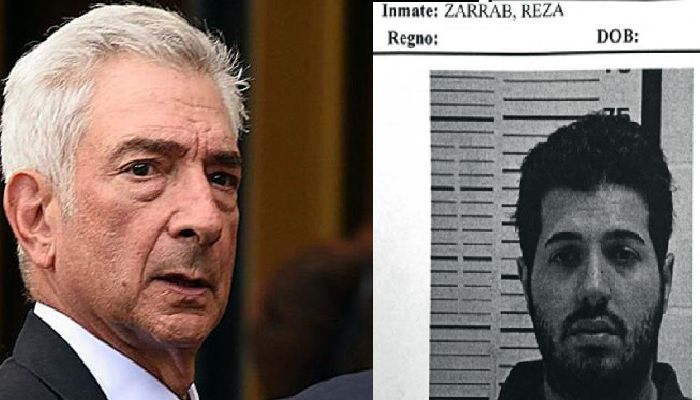Judge Richard M. Berman, the senior federal judge of the US District Court for the Southern District of New York who is hearing the case of two Turkish businessmen, including Turkish-Iranian gold trader Reza Zarrab, charged with evading economic sanctions against Iran, said on Tuesday that the Turkish government can provide evidence to help defendants instead of lobbing criticisms.
According to an AP report, Berman’s remarks are considered an acknowledgment that Zarrab, who has been in federal prison since he was arrested in March 2016, remains part of the case even though his attorneys have not participated in the public submission of pretrial documents and has not appeared in court in weeks.
Zarrab has stopped appearing in court, prompting speculation he is cooperating with the US and may testify against his co-defendant Mehmet Hakan Atilla, an executive with the state-owned Halkbank. Lawyers have refused to discuss Zarrab, though he apparently was the subject of a sealed court hearing on Monday when the trial was postponed until next week.
The Federal Bureau of Prisons website listed him as released from the prison system earlier this month, but a government spokesman said he remains in custody, though he wouldn’t say where or how.
Berman’s remarks came a day after Turkish Deputy Prime Minister Bekir Bozdağ said Zarrab was a “hostage” in the hands of US authorities being forced to testify against Turkey’s government.
“The best way for them to be helpful is to help defense counsel by providing in court any evidence or witnesses they are aware of that could assist the defense,” Berman said.
He said officials in Turkey could also encourage any employees of Halkbank, which is majority owned by the government of Turkey, who have relevant evidence to turn it over.
Earlier on Tuesday, Joon H. Kim, the acting US attorney for the Southern District of New York, said at a news conference that claims the prosecution is driven by Turkish politics “are ridiculous on their face.”
“Frankly, it displays a fundamental misunderstanding of how our justice system works,” he said. “The defendants are charged with serious crimes. … That’s why the case is being brought and that’s the only reason. Beyond that, I’ll let the evidence speak for itself.”
Cathy Fleming, an attorney for Atilla, told Berman at a pretrial hearing Tuesday that secrecy rules were limiting the ability of the defense to prepare for trial.
She said the lawyers were not allowed to share the name of one trial witness even with their client.
“Frankly, if we even suggest the name to anybody, it’s going to end up in the press,” Fleming said.
Zarrab, together with alleged co-conspirators, has been charged with handling hundreds of millions of dollars for Iran’s government and Iranian entities from 2010 to 2015, in a scheme to avoid US sanctions on Iran. He has pleaded not guilty and is due to go on trial in New York on Nov. 27.
Ankara says the case is based on fabricated documents. Turkish authorities opened an investigation into the US prosecutors who brought charges against Zarrab, state media said on Saturday, citing the allegations that it was based on fabricated documents.
Under a previous Turkish investigation that became public in 2013, Turkish prosecutors accused Zarrab and high-ranking Turkish officials of involvement in facilitating Iranian money transfers via gold smuggling, leaked documents at the time showed.
President Recep Tayyip Erdoğan, then prime minister, cast that investigation as a coup attempt orchestrated by his political enemies. Several Turkish prosecutors were removed from the case, police investigators were reassigned, and the investigation was later dropped.
Erdoğan, who has not been accused of any wrongdoing, has said US. prosecutors have shown “ulterior motives” by including references to him and his wife in court papers relating to the trial in New York.

